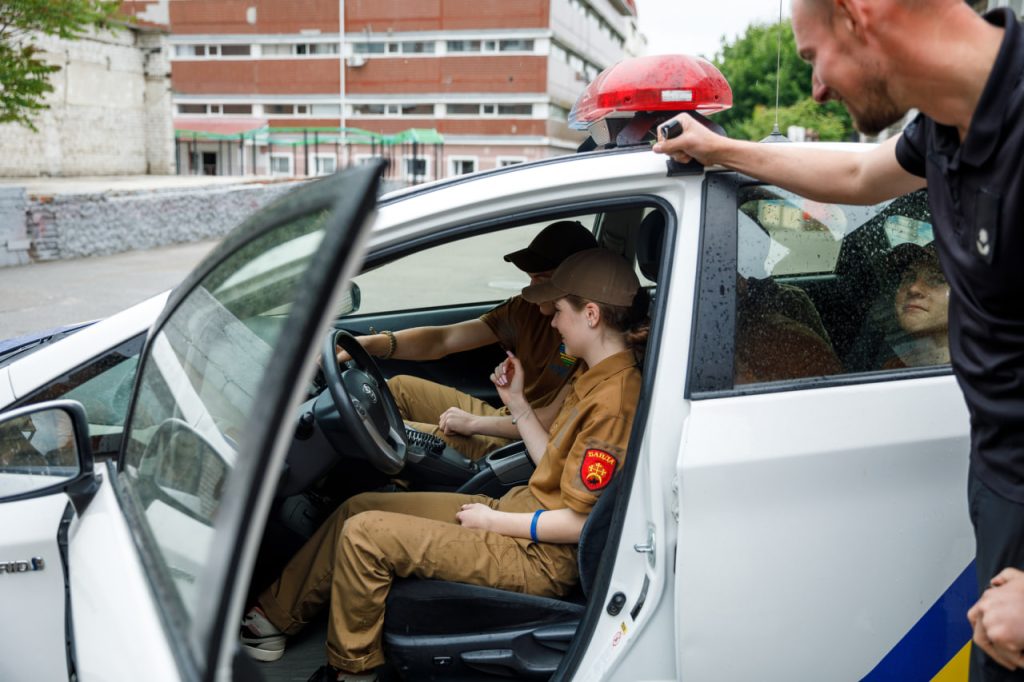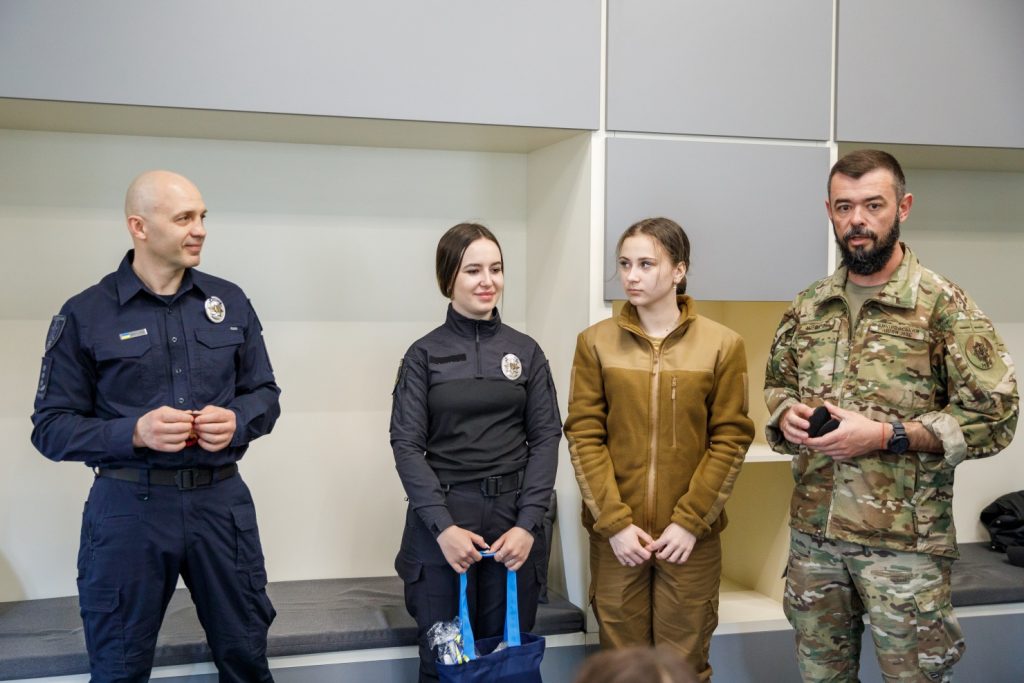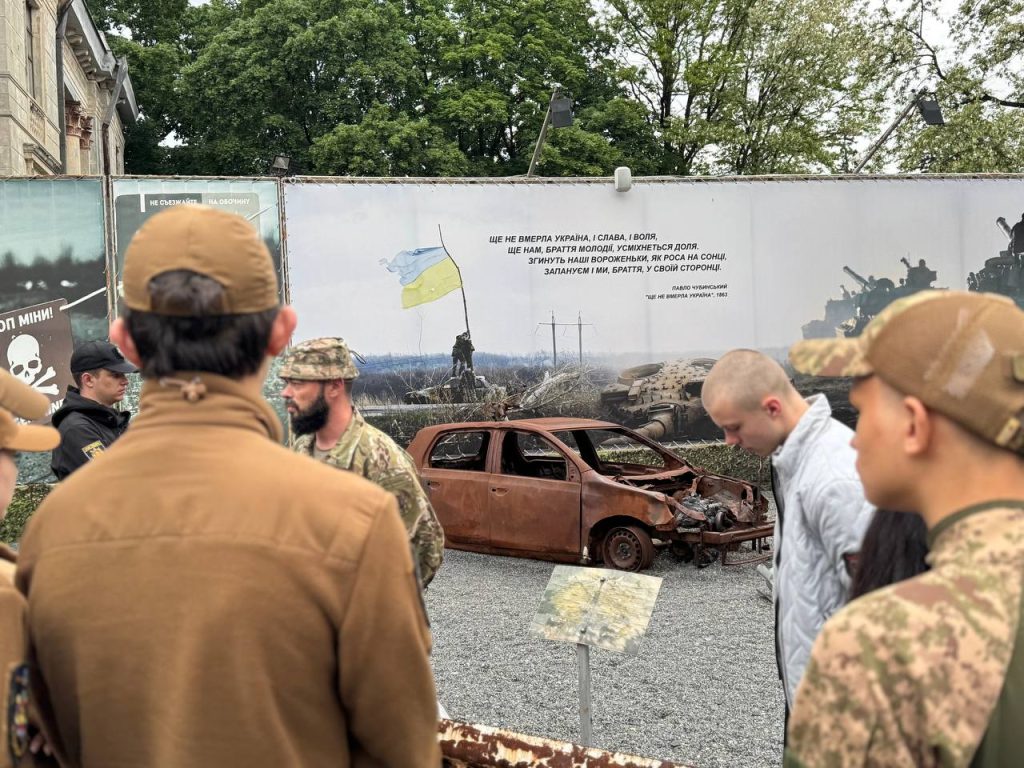As part of their visit, the young guests toured key locations of the Dnipro Lyceum named after O. Hostishchev and the university itself. They got acquainted with the campus, facilities, and learning conditions.
Together with members of the DSUIA teaching staff, the guests walked through the training classrooms where cadets hone their practical skills necessary for maintaining and protecting public order.
The visitors were shown a classroom dedicated to the use of UAVs in police work, where they were given a detailed explanation of the structure and operation of unmanned aerial vehicles. The students even had the opportunity to operate UAVs themselves: first using flight simulators, and later — outdoors on the university grounds.



In the specialized classroom for the identification of explosive devices, the guests learned how police officers respond to reports of suspicious objects resembling explosives, and how to ensure personal and public safety in such situations.


The visitors also learned the basic rules of handling firearms during a visit to the shooting range. There, they tried on elements of police gear and — under professional guidance — fired a few training rounds. Participants of the youth movement also explored a police vehicle and were told about its special features and how it is used during active duty


At the DSUIA library, the guests met with the Head of the University, Colonel of Police Oleksandr Morgunov. In an informal setting, they asked the rector about study conditions, the admission process, and the advantages and prospects of the police profession.


The excursion through the Dnipro Lyceum of Security and National-Patriotic Education named after O. Hostishchev was conducted by the Lyceum’s director, Kyrylo Nedria. The guests walked through the grounds, toured the educational buildings, and saw the dormitories and living conditions of the lyceum students.
At the end of the visit, the students went to the Museum of the Contemporary Russian-Ukrainian War in Dnipro, which preserves the stories, artifacts, and personal belongings of defenders from the Dnipropetrovsk region.



According to the university administration, DSUIA is always open to meeting with young people, future graduates, and prospective students. Such events help create a complete picture of the university’s educational process, its specifics, challenges, and admission requirements. In turn, this attracts motivated and goal-oriented applicants.

— 232


